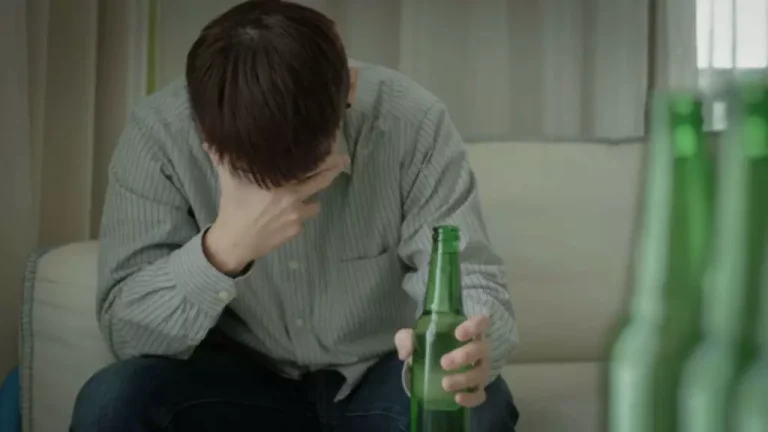Guilt and Shame in Recovery

Guilt and shame play a major role in anyone’s journey to recovery. Guilt and shame are generally seen as negative emotions as they put people in embarrassing states of mind, but they each serve a purpose and when these emotions are understood they can be put to good use.
So first, let’s understand both guilt and shame, understand their relationship to an addiction, and finally, understand their role in someone’s recovery.
Guilt and Addiction
Guilt is a negative emotion that someone experiences generally when they feel like they’ve done something wrong in the past. Guilt has to do entirely with one’s own self. Guilt arises when someone has done something wrong, realizes that they have done something wrong, and feels bad for it.
This is the key part: guilt is felt when the person who did the bad or wrong thing acknowledges that it was bad and feels bad about it themselves. Not necessarily because others think that what they did was wrong or bad, but that they believe the thing that they did is genuinely wrong.
Guilt can play a major part in addiction, and it can also terrify someone into complete stasis. Guilt, along with all emotions, exist for a reason. Guilt is an emotion that signals you to look at specific behaviors and make a judgement call whether or not you should adjust said action.
When guilt works it’s job, it’s a simple two-step process. You feel guilty for the bad habit or action, take action against that habit or action (if you can), or learn from past mistakes and prevent yourself from doing that again.
Life isn’t always as simple as that, unfortunately. Guilt is a complicated emotion, and it’s not one that is easily dealt with.
Guilt can sometimes cause people to question their actions in a non positive way. They will experience the emotion without actually letting the emotion make any change in their life. When this happens, guilt is in its worst form. Guilt will freeze someone into inaction, allowing the individual to only experience the negative emotion without allowing them to change.
Other situations, such as addiction, could also prevent them from changing their actions, even if they know it’s wrong. In this case, guilt is solely a negative emotion that one can’t really do anything about without serious thought and outside help, though that emotion could be a catalyst for getting said help.


Take back control of your life and start on the road to recovery now.
Shame and Addiction
Shame is a slightly different emotion from guilt. They are used interchangeably, and for the most part, they can be. For the purposes of this article, however, we will make a distinction. Shame is an emotion that is triggered when someone believes that their actions are negatively viewed by those outside of themselves.
Shame can still be a positive emotion, but it needs to be taken into rational consideration. Shame cannot be reacted to in the same way as guilt. Guilt as an emotion is generally temporary. Shame is an emotion that persists longer than one rationally needs it to. Shame can still spur someone on to positive change, but they need to be sure that the action that they intend to change actually needs change.
Oftentimes, alcoholics experience shame because they know that their family and loved ones would not approve of their behaviors. In these cases, shame is still a functional emotion and is working properly, though the person that experiences it likely could use different emotions alongside the shame that they may be feeling from their family.
Shame is a very confusing emotion. This is because the emotion feels like it comes from outside, but actually comes from within. When this is confused, some people can mistake certain actions for actions that are intended to be hurtful or point out their disapproval. Sometimes, the person that is exhibiting the actions that the addicted individual will interpret as negative. This misinterpretation will lead to strained relations later on, and will only serve to add more stress to the addicted individual’s life.
When shame is at its best, it helps curb negative emotions that can hurt full communities of people. Unfortunately, shame often doesn’t work in today’s society and just forces them into a defensive position where they forgo all introspection in the interest of self preservation. This is why if you think that someone you love could be feeling ashamed of themselves for whatever reason, helping them would be to help make them feel less ashamed and not defensive.
This seems counter-intuitive, but if you truly care about the person and them overcoming their addiction, helping them avoid shame at all costs is a great way to do just that.
Guilt, Shame, and Relapse
Guilt and shame play major roles in people’s relapses. The negative emotions that they experienced while they were still entrenched in their addiction can drive them to not make mistakes in the future, however, they can further fire up someone’s relapse to be more than just a one-night mistake. The negative emotion that they experience from the guilt the night of/day after could be a catalyst for a relapse that lasts much longer than it needs to.
Guilt and shame, in this case, need to be nipped in the bud. They need to be understood that they will happen, and that only a supporting community can help bring the addicted person to the place that they want to be at.
At this point, the addicted individual has already gone through one of the harder parts, admitting that they have a problem and getting help. In this case, guilt has already done its job and should be stopped so as to not produce negative effects.
If this is you, it can be hard to just “think away” the guilt. It often requires a large and committed support group for one to truly believe that they are not worthy of the guilt they are experiencing.
If this isn’t you and you know someone who might be feeling this emotion after a relapse, let them know that you’re there for them and that they are not their mistakes, but so much more than that.

This can be a difficult journey, but you don’t have to go it alone. Let us be your guide and provide you the environment needed to regain control of your life and begin the path to recovery.
Dealing With Guilt and Shame
Experiencing guilt and shame are inevitable throughout life. Understanding that these emotions will come and what you will experience when you feel them is important. Understanding what to do in each situation is more important.
Dealing with guilt and shame throughout your life will look different depending on what circumstances you find yourself in. In every case, if you feel an emotion like guilt or shame, take the time to analyze it. Ask yourself a few questions:
- Is this guilt or shame I’m feeling?Recognizing your emotions is the first step in self-actualization. Recognizing that you have emotions for a reason will help you become a more complete person.
- Is the guilt or shame I’m feeling justified?This is a hard question to answer. If it’s shame, the answer might not always be yes, however they should still analyze the action that is making them feel the shame and see if there should be change. If it’s guilt, change is much more frequently warranted. Let the moment pass if you are working on it, however. Don’t sit in guilt.
- How can I adjust my behavior to avoid feeling this again?What should you do in order to change this emotion? What concrete steps can you take to help yourself move past this? This answer is incredibly hard to answer yourself, and once answered often requires additional outside help.
If you or a close friend is experiencing addiction, reach out and get help. If you don’t know where to start, reach out to us at ecosoberhouse.com. We have all the tools you need and want to help you get to recovery.




